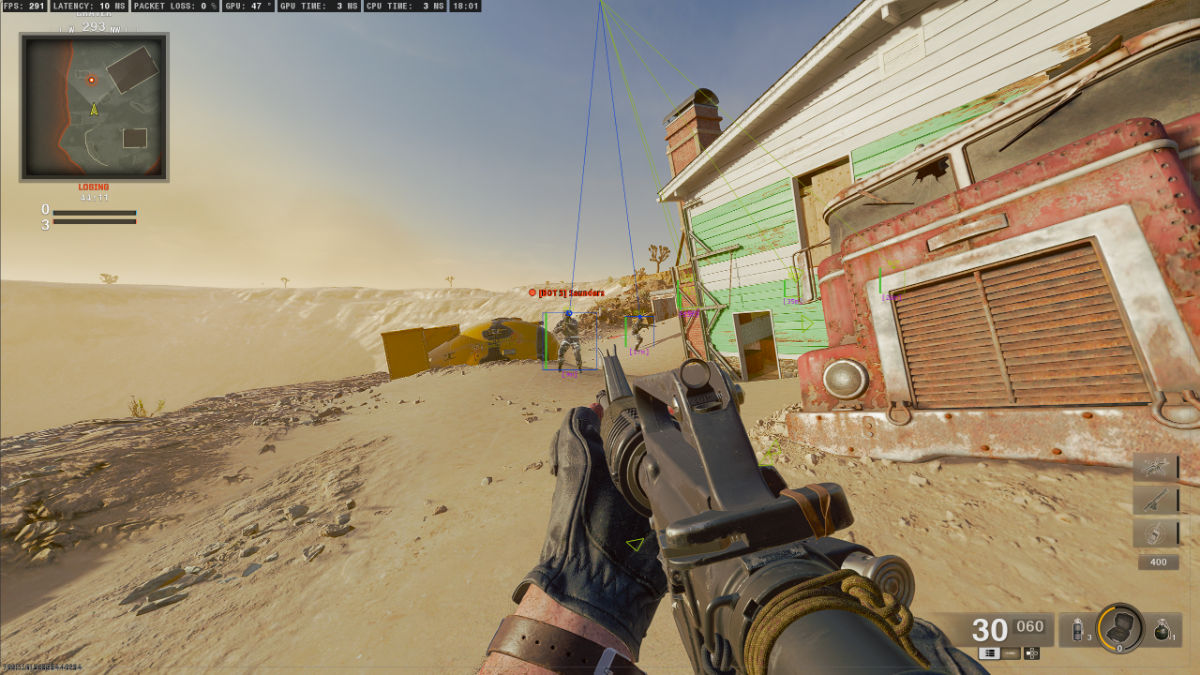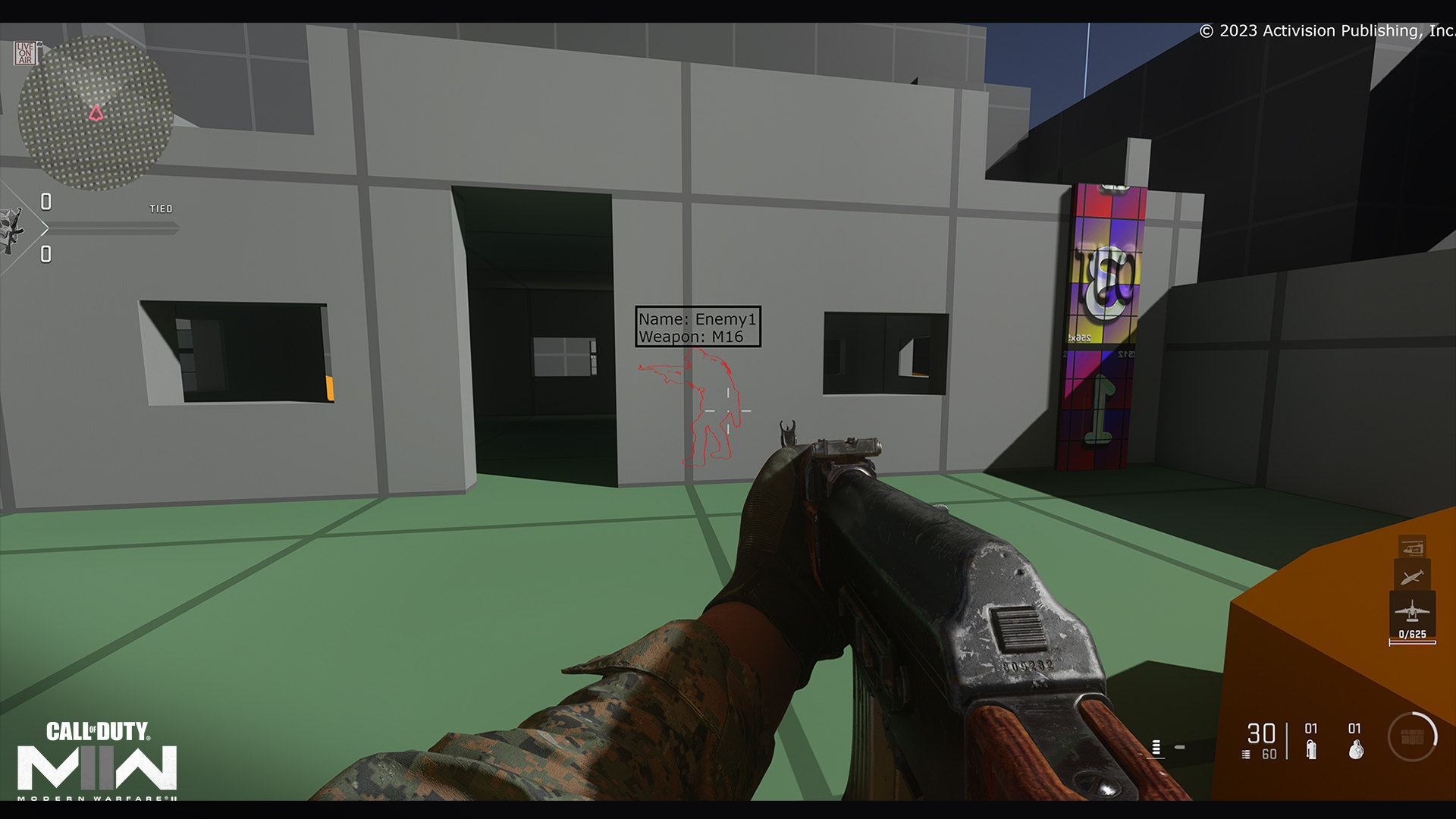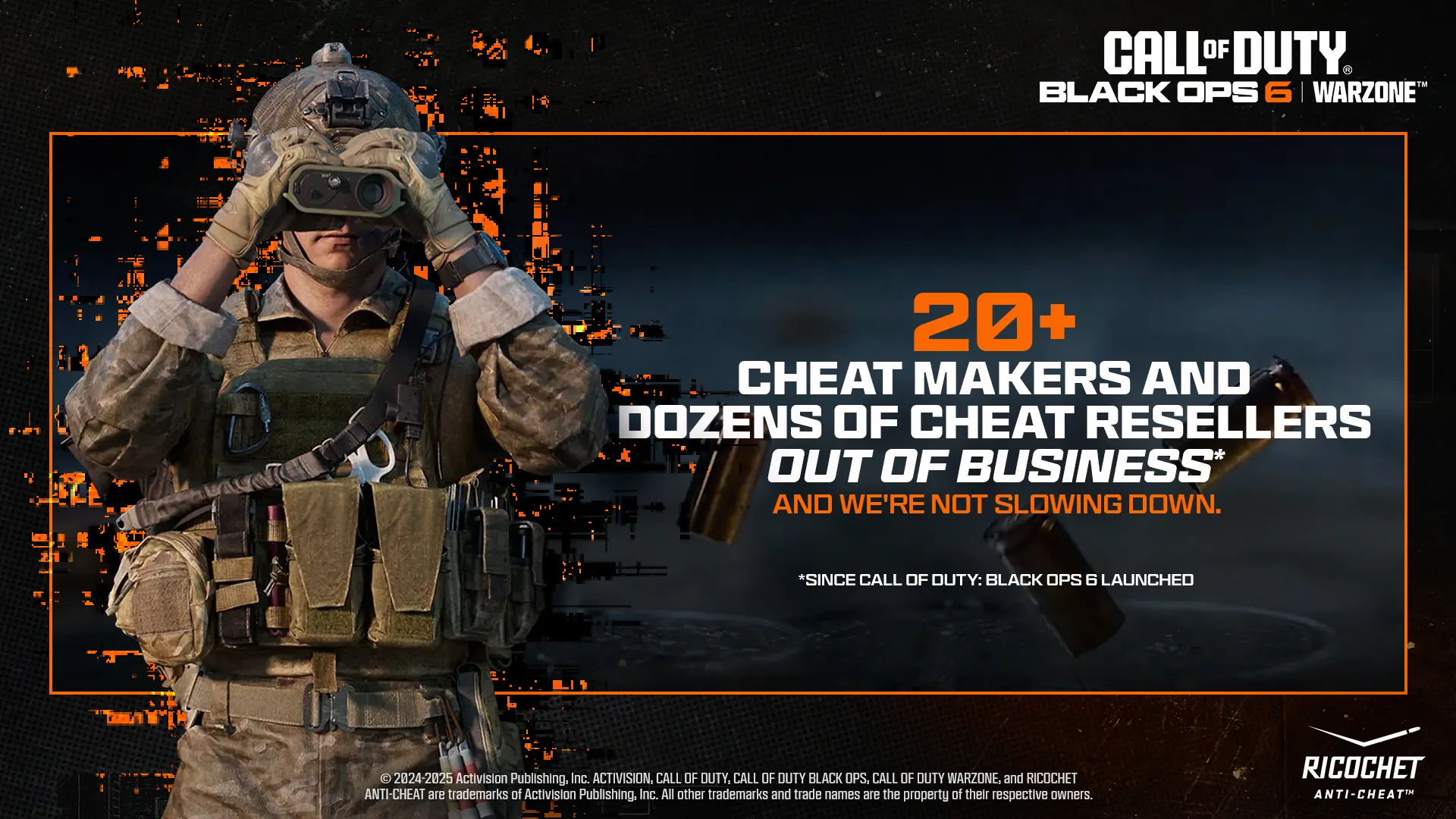
The full reveal of Call of Duty: Black Ops 7 is just on the horizon, so Activision and the Call of Duty dev team are significantly ramping up efforts to improve anti-cheat enforcement ahead of the game's fall launch.
Team RICOCHET, Call of Duty's anti-cheat enforcement department, has announced that new hardware-level cheat detection will begin rolling out with the launch of Black Ops 6 Season 5 on August 7.
The anti-cheat team shared a post on the official Call of Duty blog thanking players for standing up against cheating in Call of Duty games and for continued feedback on RICOCHET: "Even when the feedback is tough, we're listening."
The latest wave of anti-cheat enforcement will aim to strengthen game security by targeting PC players using built-in Windows PC features, including TPM 2.0 and Secure Boot.
Hardware level cheat mitigation

In previous TEAM RICOCHET progress reports, Call of Duty's development team has acknowledged that PC players who utilize cheats significantly outweigh the number of players on console who find ways to take advantage of unfair play mechanics. This has even resulted in Activision providing an 'out' for console players who want to turn off cross-play with PC players to mitigate the risk of running into cheaters.
The next update for Call of Duty: Black Ops 6 will begin the rollout of hardware-level cheat detection, using Windows PC's TPM 2.0 and Secure Boot. The Season 5 rollout will start the implementation process for the new security protocols and allow the team to test them in a live setting prior to the release of Black Ops 7.
TPM 2.0 and Secure Boot are security features built into Windows that run security checks at startup to ensure that the PC's boot process has not been tampered with and that only trusted software loads when Windows starts.
Team RICOCHET confirmed that the process does not allow Activision or the development team access to login credentials or sensitive data that may be stored on your PC. TPM 2.0 and Secure Boot launch before Windows loads, and the security checks will only report whether your PC system passes or fails those checks.

After validating that your gaming PC launches in a trusted state, those results are passed on to the Call of Duty servers when you connect to play multiplayer.
The Call of Duty servers then provide a final check to ensure the system is trustworthy before allowing the player access to the game. Should your system fail those checks, you won't be able to play Call of Duty until Windows confirms that everything is secure.
Security checks are all initiated at game startup, and Activision claims that game performance will not be affected. TPM 2.0 and Secure Boot will not replace the kernel-level driver monitors already in place with RICOCHET anti-cheat. "These systems are complementary, not redundant," writes Team RICOCHET.

The decision to roll out TPM 2.0 and Secure Boot as anti-cheat measures for gaming isn't limited to Call of Duty. Recently, EA (Electronic Arts) announced similar anti-cheat efforts for its upcoming game, Battlefield 6.
Like Call of Duty, Battlefield's team utilizes an in-house developed anti-cheat dubbed Javelin. Both anti-cheats are kernel-level solutions. Javelin was originally designed for Battlefield 2042, and has been updated ahead of the October launch of Battlefield 6.
While TPM 2.0 and Secure Boot are only just being implemented in Black Ops 6 with the launch of Season 5, Call of Duty: Black Ops 7 will require the features to be enabled in order to play.
Call of Duty TPM 2.0 and Secure Boot system requirements
You'll want to be sure your gaming rig is up to snuff before the launch of Call of Duty: Black Ops 7 if you want to play. Your PC system will be required to have Windows 10 Version 22H2 or later, or any version of Windows 11, TPM Version 2.0.
Supported CPUs will be 8th Gen Intel (with Intel PTT) or newer, and any AMD Ryzen 2000 series or newer. PCs running Windows 11 likely already have TPM 2.0 and Secure Boot enabled, but if you want to ensure you're ready to go, we have a helpful guide on how to enable Secure Boot so you can play Black Ops 7 and Battlefield 6.
Cheat mitigation efforts and targeting cheat distributors

In recent months, Activision has ramped up its attacks on cheat distributors, issuing cease and desists that force the developers behind Call of Duty cheats to shut down.
Since the previous update, RICOCHET has targeted an additional 22 cheat distributors to cut off the development and selling of game-disrupting cheat software.
Activision is promising legal action for cheat distributors who do not comply with cease-and-desist efforts by closing their doors.
"There is no magic bullet to stop cheating; it is a challenge the entire industry is facing," writes Team RICOCHET on the Call of Duty blog.







